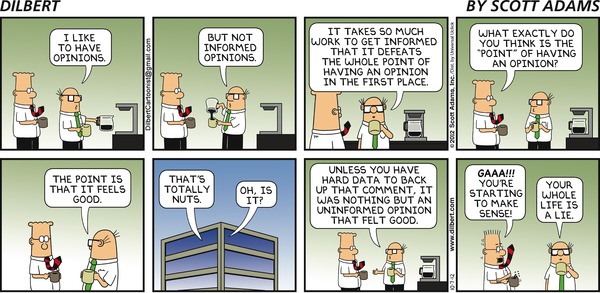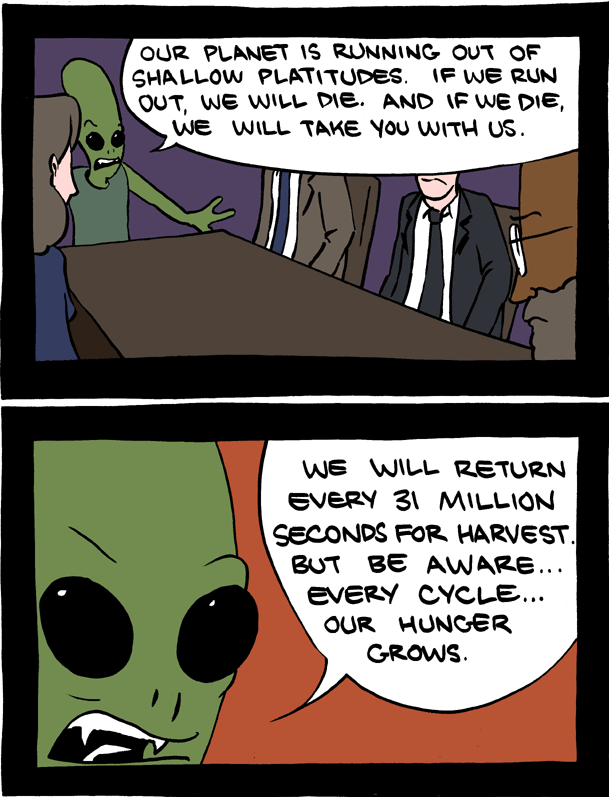Entitlement
Reader PH feels that the meaning of entitlement has changed from "a legitimate claim" to "an illegitimate claim", and wonders when and how and why this happened. As an example of currrent usage, he points to Philip Rucker, “Romney sees choice between ‘entitlement society’ and ‘opportunity society’”, Washington Post 12/20/2011:
Mitt Romney framed the 2012 presidential election in a speech here Tuesday night as a choice between an “entitlement society” dependent on government welfare and an “opportunity society” that enables businesses to flourish.
Read the rest of this entry »
A life out of key
As I followed last month's big educational scandal in Britain, the story of the teacher who ran away with a young schoolgirl, a song was going round in my head. The obvious one (what else?): Sting's "Don't Stand So Close to Me," the last big hit by The Police back in 1980 (they recorded a moodier reprise of it in 1986). Sting's lyrics ("Young teacher, the subject // Of schoolgirl fantasy…”) are a remarkable piece of writing, telling their story in spare yet evocative phrases. But I've noticed something else: The grammar of the song's chord structure also contributes to the storytelling.
Read the rest of this entry »
Permalink Comments off
Einstein Bros ciabatta
When I went to the Einstein Bros Bagels shop in Houston Hall at 7:39 a.m. this morning to get my usual sausage, egg, and cheese on a ciabatta loaf, I noticed this sign taped to the cash register:
Read the rest of this entry »
An unexpected verbing
English speakers have been verbing nouns and nouning verbs since before English was called English. Still, this kind of zero derivation (also known as "conversion") is only quasi-regular, like most other kinds of derivational morphology: it spreads word by word. And new conversions are sometimes surprising, like this one from "Red Sox Act Swiftly, Fire Valentine After One Season", AP 10/4/2012:
“This season was by far the worst we have experienced in over ten years here. Ultimately, we are all collectively responsible for the team’s performance,” Red Sox chairman Tom Werner said. “We are going to be working tirelessly to reconstruct the ballclub for 2013. We’ll be back."
“We thank Bobby for the many contributions he made and for the energy he brought each day. He is a baseball man through and through.” [General manager Ben] Cherington, who replaced Theo Epstein last offseason, will headman the search for a replacement.
Read the rest of this entry »
"… repeated violations of an act"
Brian Mahoney, "NBA Sets Flopping Penalties; Players May Be Fined", AP 10/3/1012:
Stop the flop.
The NBA will penalize floppers this season, fining players for repeated violations of an act a league official said Wednesday has "no place in our game."
Those exaggerated falls to the floor may fool the referees and fans during the game, but officials at league headquarters plan to take a look for themselves afterward.
Read the rest of this entry »
Newly invented fake prescriptive poppycock
Allan Metcalf has done a remarkable thing over on Lingua Franca, in the post you can see here: he has announced a contest in which readers have to think up new fake prescriptive rules ("The rule has to be a brand new one, not announced in any previous usage manual, but—and this is the hard part—it has to look venerable… a rule that appears to have been followed by careful writers all along, while being misused or ignored by careless writers"), and he's actually got his commenters doing it, and some of them are brilliant. They are actually thinking up fake prescriptive poppycock that you might almost actually believe if you didn't know better. Check it out.
Permalink Comments off
Vietnamese polysyllabism
There is a movement called Vietnamese2020 that aims to substantially reform the writing system by the year 2020. The main change would be to group syllables into words. As the advocates of this change point out, most words in Vietnamese are disyllabic (the same is true of Mandarin). The proponents of the reform believe that, among others, it would reap the following benefits:
1. achieve greater compatibility with the needs of information processing systems
2. comport better with the findings of cognitive science
3. put the kibosh on the false notion of monosyllabism, which they say is unnatural and does not exist in real languages
Read the rest of this entry »
Lexical loops
David Levary Jean-Pierre Eckmann, Elisha Moses, and Tsvi Tlusty, "Loops and Self-Reference in the Construction of Dictionaries", Phys. Rev. X 2, 031018 (2012):
ABSTRACT: Dictionaries link a given word to a set of alternative words (the definition) which in turn point to further descendants. Iterating through definitions in this way, one typically finds that definitions loop back upon themselves. We demonstrate that such definitional loops are created in order to introduce new concepts into a language. In contrast to the expectations for a random lexical network, in graphs of the dictionary, meaningful loops are quite short, although they are often linked to form larger, strongly connected components. These components are found to represent distinct semantic ideas. This observation can be quantified by a singular value decomposition, which uncovers a set of conceptual relationships arising in the global structure of the dictionary. Finally, we use etymological data to show that elements of loops tend to be added to the English lexicon simultaneously and incorporate our results into a simple model for language evolution that falls within the “rich-get-richer” class of network growth.
Read the rest of this entry »
Signature vs. seal
The Japanese may be forgetting how to write kanji ("Japanese survey on forgetting how to write kanji"), but, so far as their signatures are concerned, perhaps they don't really need to write them anyway, since they still rely heavily on seals for affixing their John Hancock to documents. When I lived in Japan (around 1995), even I had to purchase a seal, or I wouldn't have been able to get properly registered as a resident alien.
Read the rest of this entry »
What ho, Mitt!
Commenters on Mark's post about my remarks to the BBC about Briticisms asked if I really had it in for Briticisms in general, and in particular, what was I found so objectionable about "spot on." For the first, the answer is no; as I told Ms Hebblethwaite, some loans are quite useful, like "sell-by date" and "one-off." And I like "twee," with its evocation of Laura Ashley preciosity, though it seems to have lost some of those associations in its application to a genre of indie pop.
But there are others which add nothing more than the fact of their Englishness—what I think of as "motorcar" words. "I liked the funny bits"—what does that convey that "the funny parts" doesn't, other than to say that the speaker is familiar with how the English talk? And given that Anglicisms generally flow to us via a narrower pipe than the one that pours Americanisms into British speech, and one that with some exceptions tends to deposit its effluvia into the cultural upper stories, the practice often suggests a whiff of pretension. But with "spot on," there's something else going on. I don't think I would have called it ludicrous, as Ms H reports me as saying. But I might very well have said "awfully silly."
Read the rest of this entry »
Bipartisanship (the bad kind)
Some news about the presidential debates from Politico, as reported by Dylan Byers:
Philips pulls presidential debate sponsorship
Philips Electronics has dropped its sponsorship of the 2012 presidential debates, citing a desire not to associate itself with bipartisanship, POLITICO has learned.
That lede might cause many readers to do a double-take. If bipartisanship is conventionally understood to mean "cooperation between the two major political parties," why would Philips be opposed to such cooperation? If they don't favor bipartisanship, doesn't that mean they favor partisanship instead? But no: in this case, bipartisanship is actually the equivalent of partisanship, which are both in opposition to nonpartisanship.
Read the rest of this entry »


